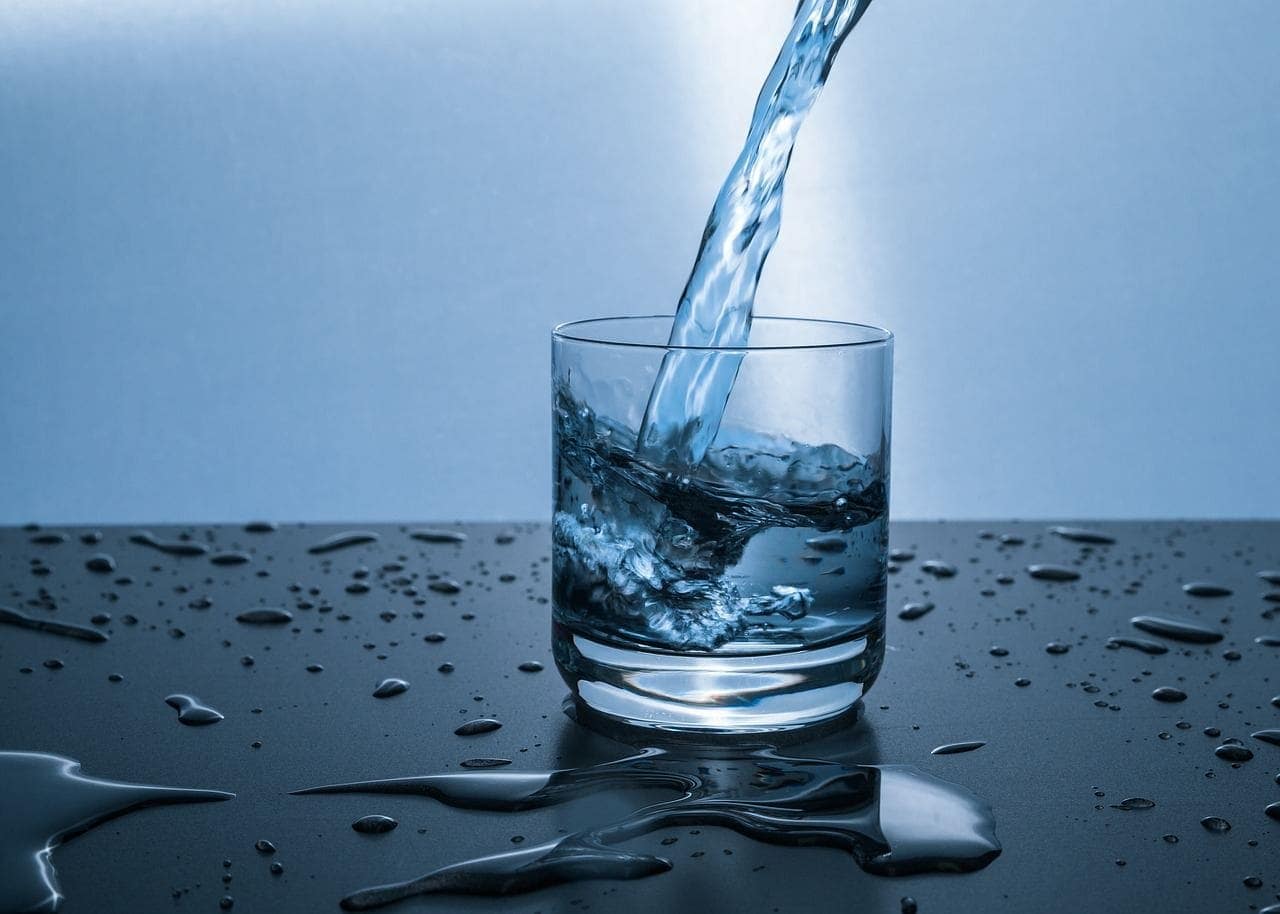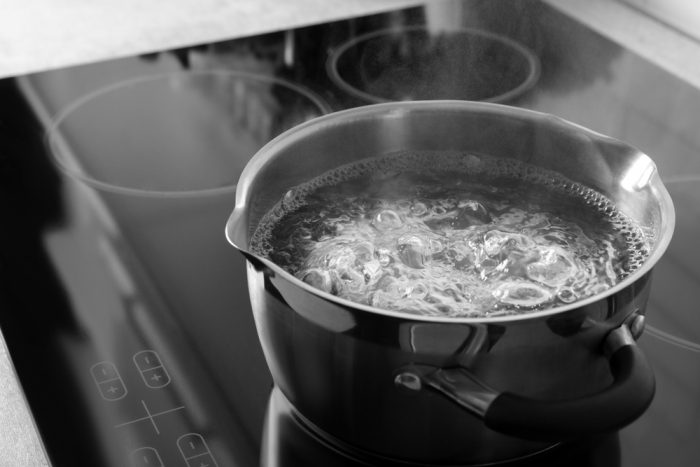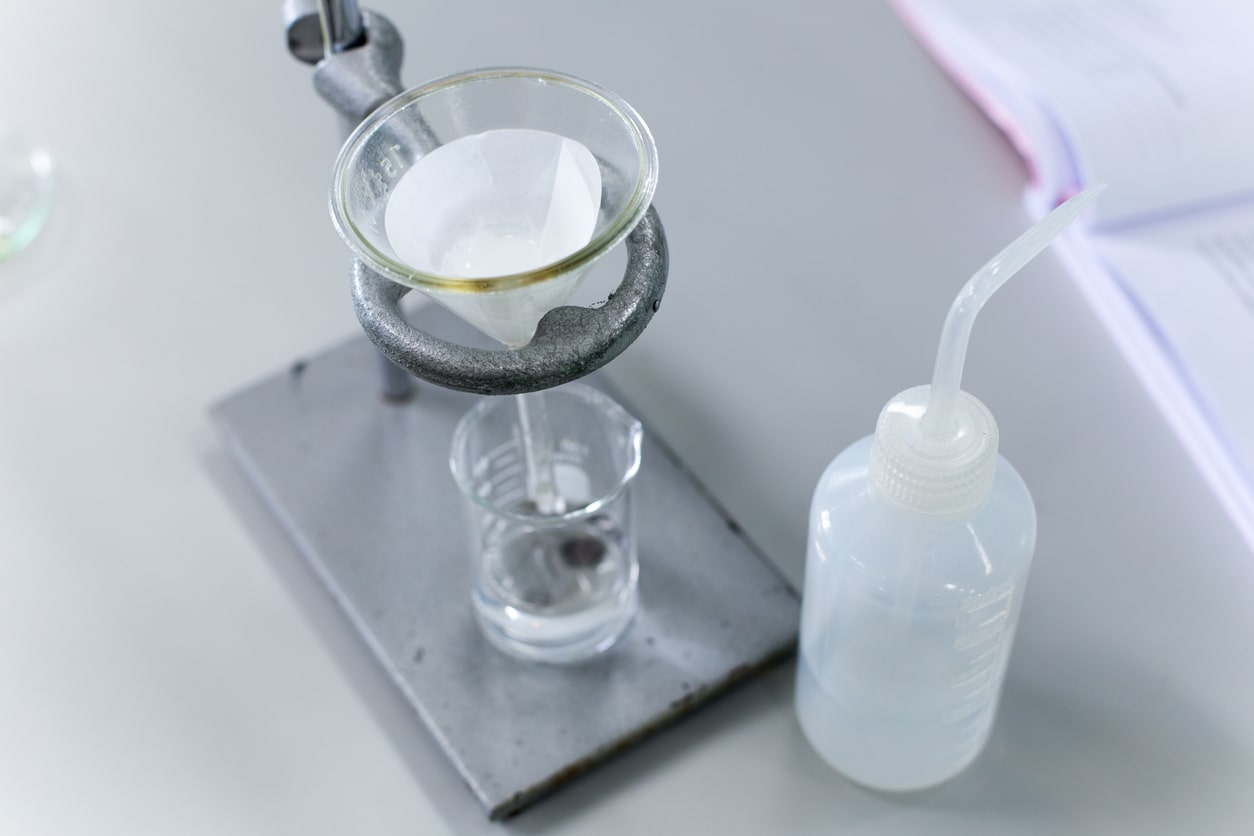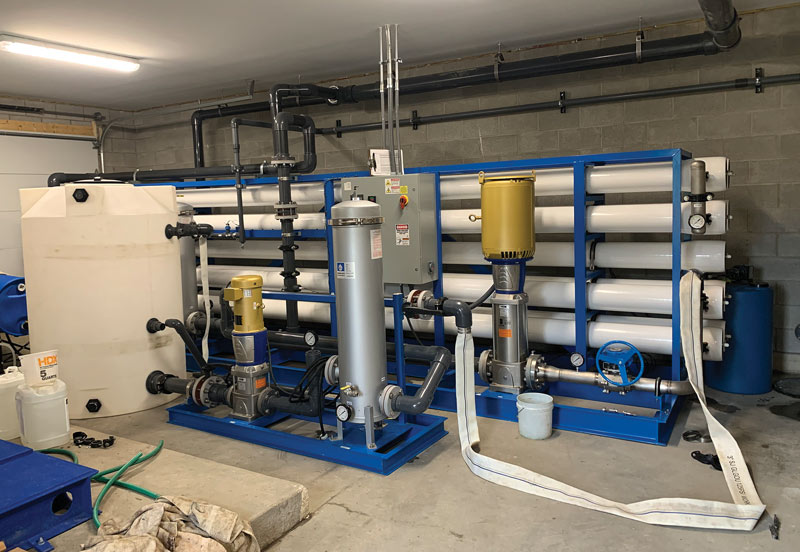Posts in Category: My Blog
4 Methods to Purify Your Water

It’s extremely important to confirm your water has been purified or treated before drinking. If your water is contaminated and you don’t have bottled water, there are various water purification methods that are used today, and each method has its merits and demerits. Filtering is good for basic water tasks such as sediment and chlorine removal, but in the long run reverse osmosis is the best option. At Schultz Soft Water we focus on reverse osmosis units because they require a lot less energy and time required to make water versus distillation.
When reverse osmosis is not available, there are 4 water purification methods that you can use to make your water safe for drinking.
1 – Boiling

Boiling water is the cheapest and safest method of water purification. Water sources and or channels of distribution may render your water unsafe. For example, parasites and germs are things you may not see by bare eyes, but their effects can be life threatening.
In this method, clean water should be brought to boil and left at rolling-boil for 1-3 minutes. For people living in high altitude areas, it is recommended to boil your water for longer than water boiled at lower altitudes. This is because water boils at lower temperatures in higher altitudes. Boiled water should be covered and left to cool before drinking. For water drawn from wells, leave it for compounds to settle before you filter out clean water for use.
2 – Filtration

Filtration is one of the effective ways of purifying water and when using the right multimedia filters it’s effective in ridding water of the compounds. This method uses chemical and physical processes to purify water and make it safe for human consumption. Filtration eliminates both large compounds and small, dangerous contaminants that cause diseases with a simple and quick filtration process.. Since filtration does not deplete all the mineral salts, water that has been filtered is considered healthier compared to water purified using other methods. It’s one of the effective water purification methods that utilize chemical absorption process that effectively removes unwanted compounds from water.
Compared to reverse osmosis, filtration is considered effective when it comes to selective elimination of much smaller molecular compounds such as chlorine and pesticides. The other factor that makes filtration less costly is that it does not require a lot of energy needed in distillation and reverse osmosis. It is an economic method of water purification because little water is lost during purification.
3 – Distillation
:max_bytes(150000):strip_icc()/1920px-Steam_distilation-d846d138330e4754af084db41f48d938.jpg)
Distillation is a water purification method that utilizes heat to collect pure water in the form of vapor. This method is effective by the scientific fact that water has a lower boiling point than other contaminants and disease-causing elements found in water. Water is subjected to a heat source until it attains its boiling point. It is then left at the boiling point until it vaporizes. This vapor is directed into a condenser to cool. Upon cooling, vapor is reversed into liquid water that is clean and safe for drinking. Other substances that have a higher boiling point are left as sediments in the container.
This method is effective in removing bacteria, germs, salts and other heavy metals such as lead, mercury and arsenic. Distillation is ideal for people who have access to raw, untreated water. This method has both advantages and disadvantages. A notable disadvantage is that it is a slow process of water purification. In addition, it requires a heat source for the purification to work. Although cheap sources of energy are being developed, distillation remains a costly process of purifying water. It is only ideal (effective and least costly) when purifying small quantities of water (It is not ideal for large scale, commercial or industrial purification).
4 – Chlorination

Chlorine is a powerful chemical that has been in use for many years to treat water for home consumption. Chlorine is an effective water purification method that kills germs, parasites and other disease-causing organisms found in ground or tap water. Water can be purified using chlorine tablets or liquid chlorine. As an off-the-shelf water purification product, chlorine is cheap and effective. However, caution should be taken when using chlorine liquid or tablets to treat drinking water. For example, people suffering from thyroid problems should talk to a medical practitioner before using this product. When using chlorine tablets, it is important to apply them in heated water, as they dissolve well in water that is at 21 degree Celsius or higher. Chlorine tablets kill all bacteria leaving your water clean and safe.
If you are looking for the best ways of treating your water, Schultz Soft Water is your best source of advice on best water purification methods and custom solutions to your water purification needs. Reverse osmosis is the best option, whereas filtering is good for basic water tasks such as sediment and chlorine removal. Reverse osmosis covers a larger spectrum of contaminant removal.
Contact our team of experienced water purification experts to give you the best water treatment solutions. We will help achieve better health for you, your family and guests.
Water Filters: The Many Ways to Purify Your Drinking Water

When it comes to drinking water, everyone wants clean, great tasting water. For many families, a home water filter helps to provide them with pristine water that is free of odors, chemicals, lead and other potentially toxic substances. Despite the fact that many of these filters seem identical, there are significant differences between the many types and brands.
If you have ever considered purchasing a water filtration system for your home or office, the information below will help you understand the different technologies and their functions.
What You Need to Know Before Buying a Water Filter
As mentioned above, all water filters are not identical. Here are three more commonly unknown facts about water filtration systems:
- Filter quality varies from one brand to another, each one eliminating a specific set of contaminants.
- Just because a filter is “NSF Certified,” it is not guaranteed to remove any specific contaminant.
- Some filters rely on multiple technologies in order to remove contaminants, while others utilize a single type.
If you wish to better understand the more technical elements of your water filter, simply read the label or visit the company website before you make a purchase.
10 Water Filtration Methods
Before you buy any type of water for your home, whether a jug from the store, a filter or even a water cooler, it’s wise to know more about the various purification methods that may have happened before you take a sip. Some filtration methods are better at removing particles and contaminants than others. Here’s a quick overview of each type of water filtration method.
1. Activated Carbon
Carbon removes contaminants by chemically bonding to the water that is poured into the system. Some are only effective at removing chlorine, which only improves taste and odor, while others remove more harmful contaminants, such as mercury and lead. It is important to note that carbon filters do not have the ability to remove inorganic pollutants such as nitrates, fluoride, and arsenic. Carbon filters are usually sold in block or granulated form to consumers.
2. Distillation
Distillation is one of the oldest water purification methods. It vaporizes water by heating it to exceptionally high temperatures. The vapor is then condensed back into drinkable, liquid water. Distillation removes minerals, microorganisms, and chemicals that have a high boiling point. These filters cannot remove chlorine and many other volatile organic chemicals.
3. Deionization
Deionization filters promote ion exchange in your water in order to remove salts and other electrically charged ions. If a contaminant lacks an electrical charge, it will be removed by these filters. Living organisms, such as viruses and bacteria will not be removed by these filters.
4. Ion Exchange
Ion exchange technology uses a resin to replace harmful ions with ones that are less harmful. Ion exchange is often used to soften water since it has the ability to replace calcium and magnesium with sodium. In order for these filters to work for extended periods of time, the resin must be regularly “recharged” with harmless replacement ions.
5. Reverse Osmosis
Reverse osmosis works by moving water through a semi-permeable membrane in order to stop larger, more harmful molecules from entering. Since this process can only block molecules that are larger than water, contaminants with larger molecules, such as chlorine, cannot be removed. Reverse osmosis systems are able to remove more contaminants than carbon, making them a popular choice for many consumers. These filters consume far more water than they produce, so they are best suited for domestic use.
6. Mechanical

Despite the fact that they cannot remove chemical contaminants, mechanical filters are an excellent option for consumers hoping to rid their water of sediments and cysts. Mechanical filters contain small holes that remove these contaminants, and they are sometimes used alongside other filtration technologies. If your water supply contains an undesirable amount of dirt and other particles, you may want to consider purchasing a mechanical filter.
7. Ozone
Ozone is often employed alongside other technologies, and it is renowned for its ability to effectively kill large numbers of microorganisms. Ozone filters do not remove chemicals, but if you are worried about getting sick from your water, this may be your best option.
8. Carbon Block
Carbon block filters are block-shaped filters that are composed of crushed carbon particles. These filters tend to be more effective than other types of carbon-based filters since they have a larger surface area. The rate at which water flows through these filters has a direct impact on their level of effectiveness. Fibredyne carbon block filters have a greater sediment-holding capacity than other types of block filters.
9. Granulated Carbon
As the name suggests, these filters use small grains of carbon to filter your water. Due to their rather small surface area, granulated carbon filters tend to be slightly less effective than their block-shaped counterparts. Much like a carbon block filter, their level of effectiveness is strongly influenced by water speed.
10. Water Softeners
Water softeners employ ion exchange technology in order to reduce the amount of magnesium and calcium in the water. This is especially useful if your plumbing fixtures are prone to accumulating mineral buildup. Since these harmful elements are replaced with sodium, water treated with this process tends to contain high levels of sodium. If you cannot consume large amounts of salt, it is best to avoid softened water. It is also unwise to water plants with softened water since it contains such high levels of sodium.
Types of Water Filters
There are various types of water filters available to consumers. Here are some of the most common types, along with their advantages and disadvantages:
-
Pitchers:
Pitchers usually contain carbon filters that improve the taste and odor of your water by removing contaminants. These filter types are inexpensive and fit easily inside of most refrigerators.
-
Under-Sink:
As the name implies, under-sink filters are installed underneath your sink and are attached directly to your water line. They can be expensive, but they require little maintenance and are placed out of sight.
-
On-Counter:
On-counter filters are placed on the counter, and are directly connected to your faucet. A switch allows consumers to switch between filtered and unfiltered water. Countertop water coolers are a popular, hassle-free way to get purified water with little work.
-
Faucet-Mounted:
Faucet-mounted filters attach directly to your faucet, allowing you to filter cooking and drinking water with ease. These filters are fairly simple to install, but they may not fit on all faucets.
Making the Right Decision
With so many choices on the market, finding the perfect water filtration system to fit your family’s needs may seem impossible at first. It is normal to feel overwhelmed, but by understanding how the different types work, and keeping your personal needs in mind, you will undoubtedly find the right one. When you install a water filter in your home, your family will have access to clean and healthy water any time the need arises.
Five Key Facts about Water Filtration

We tend to take water for granted, especially in western society, and the benefits of water filtration are frequently overlooked.
Turn on a tap and there it is; flowing effortlessly for drinking, cooking, bathing and cleaning. It’s there for our leisure time too; for fun and exercise in swimming pools, and to educate and amaze us in aquariums and ponds.
Wherever we happen to be in the world, water holds the key to the health and well-being of everyone. Without systems in place to ensure its cleanliness, water can quickly have the opposite effect and become a harbour for a plethora of bugs and bacteria, bringing with them deleterious outcomes.
If you’ve not thought much about why water needs to be filtered, here are five key facts about water filtration and its importance for everyone.
1. Water filtration accessibility
It’s still a little-known fact that around 25% of the world’s population has no access to clean drinking water. Couple this with the fact that around 97% of all available water is either saline or for some reason undrinkable and it stands to reason that making water available for human consumption needs some serious thought. Water filtration systems are essential for the removal of water-borne disease-carrying bacteria, toxins and other harmful elements.
2. Water filtration as a barrier
Hundreds of tons of pollutants leach or are washed into our watercourses every year. Accidental contamination (from chlorine, aluminium or other elements) also happens with widespread consequences such as vomiting and stomach upsets. Secure, reliable, efficient water filtration systems prevent such impurities reaching our taps and keep our drinking water clean and healthy to drink.
3. Water filtration saves lives
Whilst you have been reading this short piece, another child has unfortunately passed away in the developing world from drinking dirty water. Portable water filtration systems being rolled out across developing areas are saving lives by providing cleaner, bacteria-free drinking water.
4. Water filtration for survival
The human brain is around 75% water and our body needs a constant supply of clean healthy water just to function properly. Whilst our immune system can detect and protect us against some bacterial invaders, some contaminants such as the virulent E-coli bug, can cause serious diarrhoea and intestinal infection. It can be found in untreated/unfiltered water containing faecal matter and in contaminated food.
5. Water filtration to stay hydrated

Clean water is a basic human need and is provided in the developed world via water filtration and treatment plants. Whilst you could probably survive for 3 – 4 weeks without food, you would probably die of dehydration after a single week without water. With a growing population and antibiotic-resistant disease on the increase, the need for clean water with bacteria and pollutants effectively filtered out has never been so great.

We all need water and we need it to be healthy. The importance of filtering our water, whether in the UK or overseas, cannot be understated – the removal of harmful toxins, bacteria and particles is essential for the maintenance of a healthy lifestyle. We also need the naturally occurring minerals that water contains and which some treatments can destroy. This is where Doulton water filtration systems come in to their own … by removing what we don’t want from our drinking water it leaves us with exactly what we need!
The History of Water Filtration
:max_bytes(150000):strip_icc()/purnewadvancedfilter-566774ae5f9b583dc3c492ff.jpg)
Because water is vital to our health, it’s been a critical focal point for ancient and modern civilizations. Nearly all settlements have traditionally clustered around water sources, which usually require some type of purification to remove harmful microorganisms and unwanted substances. Throughout history, humans have used a variety of techniques to filter out impurities, with advancements often coinciding with humanity’s expansion throughout the world.
Water treatment documentation dates back over 4000 years, when most civilizations boiled and strained their water to eliminate unwanted substances. Around 500 B.C., the first known domestic filter appeared when the Greek scientist Hippocrates invented the so-called Hippocratic sleeve, which consisted of a simple cloth back filter.
The Egyptians (400 A.D.)
During the third and fourth Century, the Egyptians purified their drinking water using a variety of methods. To eliminate harmful bacteria, they boiled the water, heated it in the sun, or submerged hot iron into it. They also filtered impurities from their water by sifting it through sand and gravel.
1627 (A.D.)
Over the next several centuries, filtration techniques changed very little until 1627, when Sir Robert Bacon made considerable advancements with sand filtration to eliminate salt from seawater.
1700 (A.D.)
By the 18th Century, the development of the microscope had given scientists new insight into the countless microorganisms present in water. In turn, many nations began using filters made of charcoal, sponge, and wool to eliminate unwanted organisms and particles.
1854 (A.D.)
Mid-way through the 19th Century, British scientist John Snow made a profound discovery when he determined that cholera was transmitted through water. After several experiments, he also found that chlorine could be used to purify contaminated water, resulting in the use of chlorination as a popular form of water purification.
1900 (A.D.)
By the 20th Century, most developed countries had established regulations that set minimum standards of water quality. This prompted the development of the advanced filtration methods we use today.
Modern Whole House Water Filtration
Modern technology allows water treatment facilities to effectively eliminate the majority of harmful substances from public drinking water. At the same time, many Americans also enjoy access to affordable private filtration systems, which make water even cleaner and better tasting.
THE IMPORTANCE OF WATER FILTRATION

Water is such an essential part of our daily lives that many times we don’t stop to consider where it’s being sourced or the quality of it. We assume we’re receiving the best possible output. For many, tap water is deemed undrinkable, which is where filtered water comes into play. The importance of water filtration is that it gives people access to clean water that is free of contaminants, that tastes good, and is a reliable source of hydration. Without it, there’s the risk of becoming ill from contaminated water or the alternative of drinking other beverages that may not be as good for your health as purified water.
There are different types of filtered water but all offer the basics of the water purification process. This involves water that has been strained of harmful chemicals, pesticides, bacteria, and other particles that contaminate the water. Although public water systems have filtration protocols in place, these vary from state to state. It depends on where your water supply is sourced from originally, the way it is treated, and the quality of water pipes. For example, older water filtration systems that use lead pipes may be harmful to the final dispersal of water because of lead leaching from the pipes into the water.
The main importance of water filtration is to prevent water-related illnesses and diseases. Infants, elderly adults, and people with poor immune systems are more highly susceptible to experiencing adverse effects due to contaminated water from the tap. According to the Centers for Disease Control and Prevention, some of the top causes of outbreaks in public water systems include:
- Copper
- Salmonella
- Hepatitis A
- E. coli
- Norovirus
Any of these contaminants and heavy metals can lead to health problems such as kidney and respiratory issues, reproductive challenges, and cancer. A polluted water supply can also be harmful to your skin and hair. Lastly, depending on the quality of water, certain values may be outside of the U.S. Environmental Protection Agency (EPA) recommended pH level. When this occurs, it leads to a chance of an increased measure of corrosivity that dissolves metal it comes into contact with and eventually becomes part of the water. Suffice it to say, the chance of drinking water that hasn’t been filtered of heavy metals and impurities isn’t a chance that many people want to take.
FILTERED WATER SOLUTIONS THAT REMOVE CONTAMINATION AND IMPURITIES

Fortunately, there are several ways people can get filtered water. A water filter has microscopic holes that remove sediment and pollutants from the water. The smaller the holes, the less it allows to pass through and the cleaner the water is. The way each type of water filtration system works is slightly different. The most common options are bottled water, at-home filters, reverse osmosis units, and alkaline water.
BOTTLED WATER
Billions of gallons of bottled water are sold yearly as demand for it continues to increase. Although perceived as an inexpensive, convenient filtered water option, it is more costly in the long run than other filtered water choices. The price of bottled water is nearly 2,000 times the cost of tap water and has vastly increased the amount of plastic waste affecting our environment.
Fortunately, many have begun to shift toward using reusable water bottles as an alternative. Having a filtered water supply readily available for use is a key factor in helping to reduce the amount of plastic waste filling up the landfills and oceans. People want clean water that tastes great and can be found conveniently at places where they frequent most often.
FILTER FAUCET ATTACHMENTS AND PITCHERS

These types of filters are easily obtained and are effective in improving the taste of tap water. They help to reduce lead and solids by using a filter screen to capture small particles. In some cases, these types of filtration solutions use a block of activated carbon that helps to remove unpleasant odors and tastes that might be present in your water.
When using either of these at-home options, it’s important to change the filter on a regularly scheduled basis. Failure to do so causes build up in the filters and the water that passes through may not be as clean as desired. Also, when it comes to the availability of filtered water using pitchers, they constantly need to be refilled and there is a period of waiting time until purified drinking water is available again. This is an inconvenience when using in larger households or in organizations where a large group of people is relying on a consistent source of filtered water.
REVERSE OSMOSIS UNITS

Reverse osmosis forces water through a semipermeable membrane using pressure. It ensures that the smallest of particles and chemicals cannot pass through, which leaves behind the purest of water. This filtration process can take a few hours to deliver a couple of gallons, which also can prove to be inconvenient. Additionally, the water used is approximately three times as much as what is treated and suitable to drink. It may remove more harmful contaminants than the average filter, but its efficiency is lacking.
For those who want to make sure their water is wholly free of toxins, this could be a valuable option. However, since it does such a good job of straining out all particles, it means any healthy minerals naturally found in tap water are often left behind as well. You get a pure water experience but compromise losing other benefits along the way.
ALKALINE ALTERNATIVES
Alkaline water has a higher pH level than typical tap water which helps to neutralize its acidity and effect on the body. There are DIY ways to make alkaline water, but the most common way is using a water ionizer. The purpose of this water treatment system is to raise its number on the pH scale.
A water ionizer uses electricity to separate water molecules into alkaline and acidic, keeping the former and removing the latter. People who suffer from acid reflux or want to reduce the acidity in their diet have found this type of water to be beneficial. However, health claims still lack solid scientific evidence that it works to improve health.
FLOWATER ADVANCED FILTRATION STATIONS
The technology of FloWater’s electric water delivery system tackles the importance of water filtration from several angles. It captures solids, bacteria, and other microscopic organisms from the water and filters them out. It also focuses on removing lingering odors and unpleasant tastes from tap water. Although these two filters work similarly to at-home filters, it captures up to 99% of harmful contaminants and is only two parts to a seven-step process.
The system also relies on an advanced osmosis filter to achieve the purest water possible. Plus, it neutralizes the water’s pH level through an alkaline enhancement filter. From there, it adds healthy components back to the water in the form of electrolytes and traces of essential minerals.
The process is then finished with a coconut carbon filter to remove any last odors or tastes to deliver a crisp, delicious finish. This extensive filtration process combines the filtered water benefits of other water treatments, adds to it, and provides it in one ready-to-go system.
WHAT TO CONSIDER WHEN CHOOSING A WATER FILTRATION SYSTEM
The majority of people drink some type of filtered water. It’s best to consider all the factors when deciding which will work best for you. First is the performance. How well does the filter work? What percentage of harmful chemicals and particles does it remove? Does it add anything back to the water to boost its quality? Not all solutions deliver the same level of water purification.
The second thing to consider is the maintenance involved. How often do you have to change filters? Are there any other components that require attention on a regular basis to achieve safe drinking water? With at-home pitchers or faucets, the filters can become clogged after filtering a certain amount of water, which then deems them ineffective. It requires diligence and a continual cost to change out these filters on a constant basis.
The low-maintenance aspect of the FloWater Refill Station serves as another benefit that other choices don’t have. The setup is performed by a certified technician and the design has chemical-free, self-sanitizing features, such as a powerful drain pump and hidden catchment tray, to limit the amount of ongoing maintenance needed. The majority of customers who use the stations only require a filter change once per year. Third, of course, is the quality of the water itself. How does the water taste? How convenient is the system to use? The goal is to have the best-tasting water chilled to the perfect temperature available at all times. When servicing larger crowds in work environments, gyms, or other public areas, speediness is a factor and doesn’t have to come at the sake of taste. FloWater stations chill water to a crisp 42° and have a fast auto-replenishment feature that takes 9 seconds to dispense into a 24-oz. bottle. It hits all the marks: cool, quick, and convenient.
FILTERED WATER AT ITS FINEST
The importance of water filtration spans across all industries and households. Everyone wants cool, crisp water without the fear of contamination in their water. FloWater provides a convenient, environmentally-friendly solution to filtering water. It also adds back electrolytes and neutralizes the water for a well-rounded, high-quality product.
It’s no secret that staying hydrated is essential to everyday health. The better the quality, the more it encourages people to drink more water on a regular basis. It’s also important that the source of purified water is readily available on-demand. With so many options of filtered water available, focus on the one that meets the full range of what people want. You can control the quality of water by using a filtration system that delivers on all levels.
ALL YOU NEED TO KNOW ABOUT COMMERCIAL WATER FILTRATION SYSTEMS

There are various types of dissolved impurities in water that need to be removed before it is potable. We need to understand that water quality is critical for commercial and as well as home use. Realize that water – whether being used for commercial or residential purposes – should be free from contaminants. For domestic use, homeowners usually prefer home filtration systems to take care of their needs. Industries usually prefer commercial water filtration systems to take care of their daily water requirements.
HOW TO FULFIL YOUR PURE WATER NEEDS
A rapid growth in population and industrialization has resulted in difficulty to meet the water requirements for future generations. We must come up with advanced solutions – optimized solutions – to meet future water demands. With that being said, there must exist reliable solutions to meet current water demands, as well. Commercial water filtration systems have proven to be the most feasible and reliable solution to fulfill future water demands.
BASIC CHARACTERISTICS OF WATER
What makes water impure? Many factors are carefully examined when coming up with a filtration process. Here we list a few critical aspects of a water filtration system.
- TDS – Total Dissolved Solids
Total dissolved solids are made up of inorganic salts and some organic matter as well. The inorganic salts are mainly calcium, potassium, sodium, magnesium, chlorides, sulfates, and bicarbonates. Most of us do not know that there is a high chance that there are inorganic and organic substances, metals, minerals, salts, and anions, in your water. Most of these are present due to natural causes; others may become dissolved in the water due to harsh environmental conditions.
- Hardness of Water
Hardness is the measurement of the amount of scale-forming compounds and elements that are present in the water. The hardness of the water refers to the amount of dissolved calcium and magnesium in the water. However, a number of metals may also be present in the water, increasing its hardness. Commercial filtration systems are equipped with ion media belts that exchange places with unwanted ions when water is passed over them to eliminate or reduce the hardness from it.
- pH Level
The pH level of pure water is 7. If the pH level of the water is lower than 7 means that the water is acidic, whereas a pH level greater than 7 means the water is basic. The pH level measures the concentration of hydrogen ions present in a solution. It is important to keep the pH level of water near 7. The pH value varies from 1 to 14, with 7 being neutral.
Water filtration becomes necessary due to the contaminants present in the water. These are not just harmful to domestic usage, but can also affect industrial processes that are associated with water.
WHY WATER COMMERCIAL SYSTEMS ARE NECESSARY

As we’ve discussed earlier, water is not just H2O, there are many types of micro-organisms present in it, degrading its quality. Here, commercial water filtration systems come into play. Most industrial filtration plants use reverse osmosis (RO) and UV light technology to filter out contaminants. Let us look at how an RO plant is used to remove chemical contaminants from water.
HOW TO REDUCE WATER HARDNESS
Adding sodium to water makes it soft (free from salt particles). Such water is perfect for domestic use as well as industrial use. When water is treated at commercial filtration plants, sodium ions along with other impurities are also separated. This separation of sodium ions from the water causes it to be soft. This means that if you are using soap with hard water to wash your hands, it will take more soap to make it lather.
Commercial water filtration systems are equipped with sodium, which allows for the addition of the necessary amount of sodium particles in the water.
CONTAMINATION-FREE WATER
You can find many contaminants in water that must be filtered out. Lead is one of them, as it can cause severe health issues. It is the primary cause of infertility, nerve damage, brain damage, severe anemia, and high blood pressure. A commercial water filtration system ensures safety from lead, providing you a safer and healthier lifestyle.
ADVANCED PURIFICATION
Residences and commercial water filtration systems are equipped with various custom-designed stages of purification. The water has to pass through all these stages before being used. However, it is up to the user to increase the number of stages as per their requirements.
COMMERCIAL WATER FILTRATION METHODS

- Reverse osmosis
Reverse osmosis water purification systems are highly adaptable and are used by many commercial water filtration plants. A system based on RO technology has proven to be a great solution for removing dissolved salts, fluoride, and bacteria from the water.
- Commercial Water Filtration System
Industrial water filtration also uses activated carbon water filter technology that works by binding toxins and impurities in the water with carbon. Carbon filters help in absorbing the contaminants, assisting in the water purification process. Carbon filters are typically used to eliminate chlorine and other harmful chemicals from water.
- UV Sterilization filters
UV sterilization is one of the most effective and efficient methods of purifying water and destroying bacteria, microbes, and other harmful microorganism present in water. When water is passed through UV light, it helps kill any present viruses, bacteria, and protozoa that might be in it, making the water potable. If you are wondering, “Is there a water filter company near me? we’re pleased to inform you that AQUA BELLE is right at your fingertips, Get yourself the best quality commercial water filtration system from us. Let us know what your need and or concerns are, and we will design a system the fit your needs and budget. We provide reliable and effective filtration systems, fulfilling your home and business needs.

